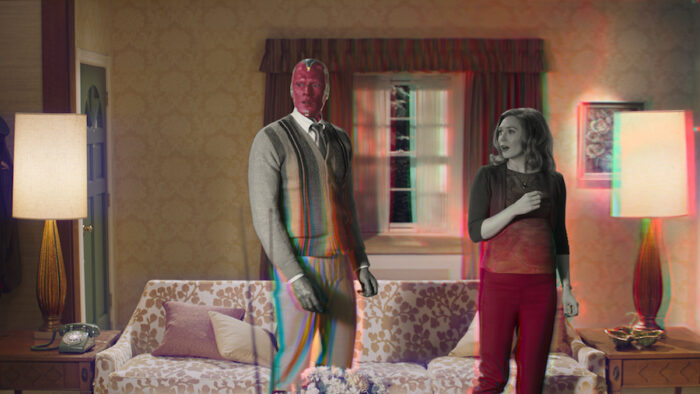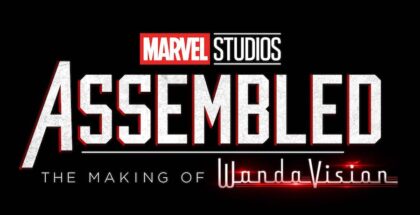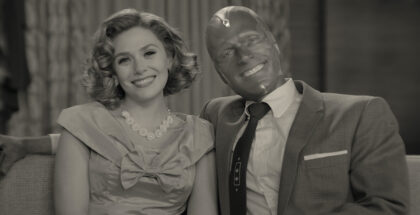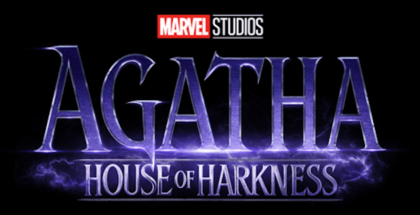WandaVision: The TV show most in tune with the Covid-19 pandemic
David Farnor | On 23, Jan 2022
Warning: This contains spoilers for WandaVision. Not seen it? Read our spoiler-free review here.
“It can’t all be sorrow, can it?” asks Vision (Paul Bettany), as he talks to Wanda (Elizabeth Olsen) on the set of WandaVision. By this point, we’ve already discovered that the seemingly perfect sitcom world the couple have been living in has been made up all along, a projection of Wanda’s wish-fulfilling denial, as she refuses to confront the truth: that Vision died a long time ago. It’s a heart-wrenching reveal, made all the more so because we’ve already guessed that it’s coming – and by watching every week, we’ve been complicit in Wanda’s retreat from the world into the comforting US TV staples with which she grew up.
And just like that, WandaVision became one of the most talked-about TV shows of 2021 – not only because it was a twisting, surprising and self-aware treat for Marvel fans, but because it was the TV show that defined the Covid-19 pandemic. Still unfolding around the world at the start of 2022 – more than a year after the finale of WandaVision – there hasn’t been a TV series before or after so remarkably in tune with the surreal, strange, tragic and painful reality being navigated outside of the small screen.
That synchronicity is all the more remarkable because it wasn’t intentional in any way – the series was going to be the second Marvel TV series debuting on Disney+, after The Falcon and the Winter Soldier, but due to pandemic delays, it ended up becoming the MCU’s small screen debut. It’s telling that not a single Marvel show since has lived up to its high bar.
That bar is partly technical, thanks to the production team that impeccably parodied the evolving style of TV sitcoms, from The Dick Van Dyke Show in the 1960s to the more modern flourishes of Malcolm in the Middle and Modern Family. From the shifting theme tune genres to the chameleonic set design, it was a constantly inventive cycle of tropes and cliches, increasingly juxtaposed by the climbing sense that something wasn’t right.
But it’s the emotional, thematic weight that marked WandaVision out as such as landmark bit of superhero on-screen storytelling. It came along at the point where the MCU was having to reckon with the consequences of everything that had gone before, as the Avengers and other characters had to face the trauma of loss, the responsibility for collateral damage and the pain of being disoriented from one’s home and normality.
All of these are things we’ve had to process in the past two years, collectively as a society and individually, and, like Wanda, we found refuge in watching films and TV shows to escape the harrowing everyday around us. Older TV shows that people already know have long been more popular than new originals and exclusives on streaming services, and movie blockbusters today trade more in nostalgia and legacy-quels than original, new ideas. There’s something comforting in going back to the familiar, even more so when it’s a sitcom – a format that, by definition, resets everything at the end of each episode so there are zero stakes or consequences to face.
It’s no surprise, then, that we did exactly what Wanda was doing and dove headfirst into fan theories and speculations, and the weekly release model adopted by Disney+ (at the time mostly because Disney didn’t have many original titles and was trying to keep subscribers on board) only amplified the escapism en masse every weekend.
By the time the finale rolled around, Wanda was having to deal with grief several times over – orphaned as a child, as we learnt in flashbacks through her life that played out like a therapy session guided by Agatha “All Along” Harkness (Kathryn Hahn), she then saw her brother killed in action in Age of Ultron and then had to killer Vision, only to see it happen again at the hand of Thanos after time rewound.
While the revelation that “Pietro” in WandaVision wasn’t an X-Men crossover – just a playful bit of casting by having Evan Peters, who played Quicksilver in Fox’s Marvel franchise, playing a random actor hired to pretend to be her brother – rang a little hollow, that perhaps only played into the cumulative feeling of emptiness bubbling under the surface.
The finale felt a bit rushed, as Agatha confronted Wanda, drawn to her potential for being more powerful than the Sorcerer Supreme, and forced her to decide between saving her imagined kids and saving everyone in Westview, which she had brainwashed into playing out roles in her projected sitcom.
There was also a bit of an unanswered question in the form of Vision, who confronted his mirror-image in the form of a robotic clone, and genuinely ended a climactic showdown with a theoretical discussion about Ship of Theseus (aka. the Sugababes) riddle – the question of what exactly makes someone who they are, even if all their individual components have been replaced over time.
But both hinged upon questions of identity – and, specifically, the way that the choices we make define who we are and the reality we inhabit. “I tried to be gentle, to nudge you awake from this fantasy,” Agatha said, as if she were some kind of guardian angel, but it’s Wanda who got the decisive conclusion: “I don’t need you to tell me who I am.”
There was, of course, some inevitable MCU tie-ins that needed to happen, in the same way that Loki’s finale was undercut slightly by its requirement to tee up future Marvel movies. Wanda’s acceptance of her grief and identity was, essentially, also accepting the mantle of the Scarlet Witch (we left her astral form looking through sinister magical tome The Darkhold, ready for her appearance in Doctor Strange’s next film). The empathetic presence of Monica Rambeau (Teyonah Parris) – “They’ll never know what you sacrificed for them,” she told Wanda. “It won’t change how they see me,” came the reply. – was partly so that she could get exposed to the radiation and develop her own superpowers. Even Agatha, who was left cursed to life in Wanda’s fake sitcom suburbia with no memories, will be getting her own spin-off in the future.
But these requirements were balanced with finesse by showrunner Jac Schaeffer, who kept returning to the motif of the real world and the comforting familiarity of fictional media – right up the finale where aspect ratio changes and cinematography shifts made the real world look more like superhero cinema than Wanda’s comforting, fake TV world.
That consistent, repeated theme – the human urge to, every now and then, escape from reality versus the human need to accept it and try to deal with it – made WandaVision the defining TV show of the Covid-19 era. One of the most quoted lines of dialogue in any TV show in 2021 was Vision and Wanda’s heartfelt discussion about who she is, what he is and, ultimately, what the afterlife holds for everyone. “I’ve never experienced loss because I have never had a loved one to lose,” he reflected. “But what is grief, if not love persevering?” It’s an observation that resonated with viewers the world over, Marvel fans or not – because, just for a moment, the MCU reached out of its universe and into the real world.



















